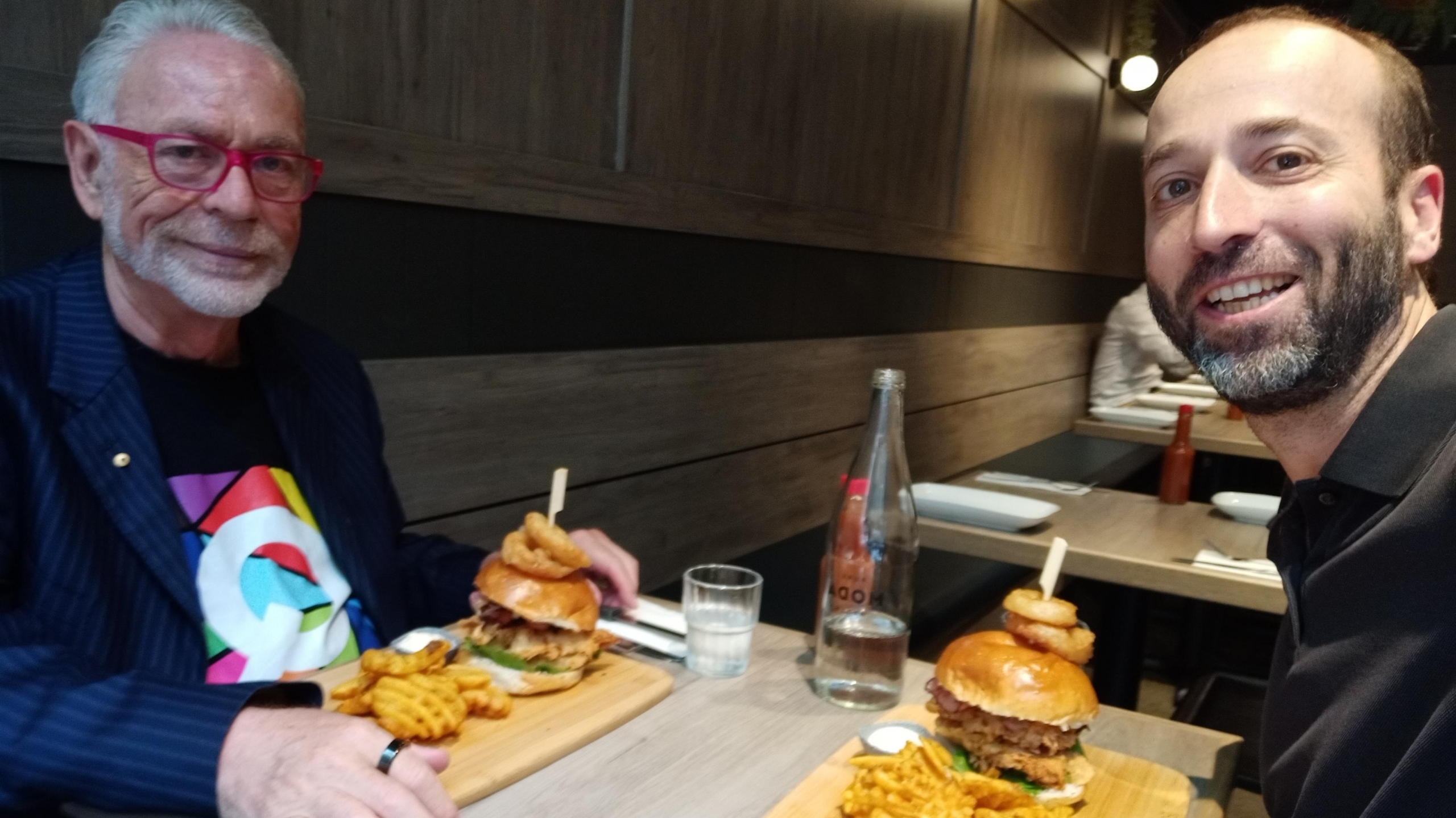In 1983, doctors took blood samples from about 1000 men in the Sydney gay community, with plans to check the samples once it became possible to test for a new virus called HIV/AIDS. The following year, a test became available – and almost 400 men ended up testing positive, including David Polson, the 355th person I’ve met on my quest to have lunch with 500 strangers.
David and the others were told to keep their diagnosis secret, because of the stigma around HIV/AIDS – and that they were likely to die in the next two to 10 years.
David, who was then in his late twenties, said his devastating new reality felt like falling into a black hole. At the same time, due to his stubborn nature, he was determined to prove the doctors wrong. David wanted to strengthen his immune system so he could hold the virus at bay until a treatment was developed: with that in mind, he improved his diet and fitness, stopped drinking and started meditating.
Four decades later, David is still very much alive. Part of the reason is that he had the courage to submit to 28 different medical trials, many of which had horrific side effects, including constant pain and nausea. I wouldn’t have had the strength to endure so much; but David persevered, because his stubbornness wouldn’t let him quit and he also wanted to make a contribution to the fight against HIV/AIDS. Since 2014, David has been on a treatment that is both successful and cost-effective (some earlier treatments worked but were not cost-effective).
These days, David is a university lecturer and keynote speaker, who educates people about HIV / AIDS.
David is also the founding chair of Qtopia, a new museum opening in February that will represent the history and culture of the LGBTQIA+ community. David’s original idea was to create an AIDS museum in honour of his remarkable doctor, Professor David Cooper, who was one of the world’s leading HIV/AIDS researchers, and who, in a cruel irony, died in 2018, before David. But he later decided to give the museum a broader scope.
Despite all his struggles – including ongoing health concerns – David is an optimist. He regards his HIV diagnosis as a blessing in disguise, because it’s given him the opportunity to meet many extraordinary people, make a contribution to medical science and play a role in the creation of Qtopia. He’s also an idealist, who hopes, one day, humans will get to live in a world without borders, without war and without discrimination.







Leave A Comment